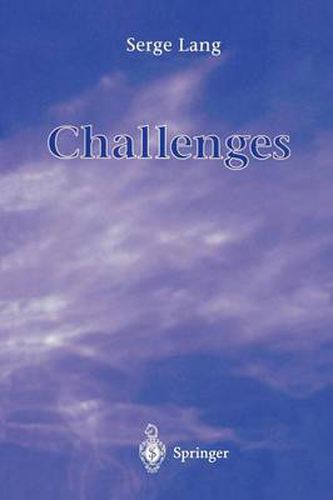Readings Newsletter
Become a Readings Member to make your shopping experience even easier.
Sign in or sign up for free!
You’re not far away from qualifying for FREE standard shipping within Australia
You’ve qualified for FREE standard shipping within Australia
The cart is loading…






This title is printed to order. This book may have been self-published. If so, we cannot guarantee the quality of the content. In the main most books will have gone through the editing process however some may not. We therefore suggest that you be aware of this before ordering this book. If in doubt check either the author or publisher’s details as we are unable to accept any returns unless they are faulty. Please contact us if you have any questions.
This collection, based on several of Lang’s Files, deals with the area where science and academia meet the worlds of journalism and politics: social organization, government, and the roles that education and journalism play in shaping opinions leading to policy decisions. In discussing specific cases in which he became involved, Lang addresses general questions of standards: standards of journalism, standards of discourse, and standards of science. Recurring questions concern: - How people process information and how misinformation is spread and accepted - Inhibition of critical thinking and the role of education: teaching students to think clearly and independently – or conditioning them to accept dominant modes of perception uncritically - How to make corrections, and how attempts at corrections are sometimes obstructed - The extent to which we submit to the authority of those higher up, and whether one can keep the higher ups accountable, possibly in the face of evasions, stonewalling, and intimidation - The competence of so-called experts - Our responsibility for what we say or write - The use of editorial and academic power to suppress or marginalize ideas, evidence, or data that do not fit the tenets of certain establishments By dealing with case studies and providing extensive documentation, Lang challenges some individuals and establishments, at the same time that he challenges us to reconsider the ways they exercise their
$9.00 standard shipping within Australia
FREE standard shipping within Australia for orders over $100.00
Express & International shipping calculated at checkout
This title is printed to order. This book may have been self-published. If so, we cannot guarantee the quality of the content. In the main most books will have gone through the editing process however some may not. We therefore suggest that you be aware of this before ordering this book. If in doubt check either the author or publisher’s details as we are unable to accept any returns unless they are faulty. Please contact us if you have any questions.
This collection, based on several of Lang’s Files, deals with the area where science and academia meet the worlds of journalism and politics: social organization, government, and the roles that education and journalism play in shaping opinions leading to policy decisions. In discussing specific cases in which he became involved, Lang addresses general questions of standards: standards of journalism, standards of discourse, and standards of science. Recurring questions concern: - How people process information and how misinformation is spread and accepted - Inhibition of critical thinking and the role of education: teaching students to think clearly and independently – or conditioning them to accept dominant modes of perception uncritically - How to make corrections, and how attempts at corrections are sometimes obstructed - The extent to which we submit to the authority of those higher up, and whether one can keep the higher ups accountable, possibly in the face of evasions, stonewalling, and intimidation - The competence of so-called experts - Our responsibility for what we say or write - The use of editorial and academic power to suppress or marginalize ideas, evidence, or data that do not fit the tenets of certain establishments By dealing with case studies and providing extensive documentation, Lang challenges some individuals and establishments, at the same time that he challenges us to reconsider the ways they exercise their